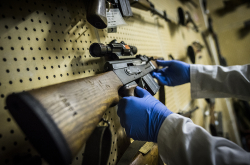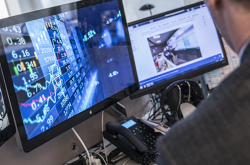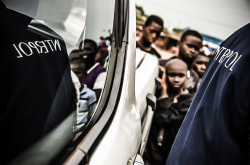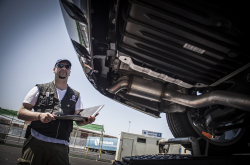The primary objective of Project Millennium is to identify and dismantle major criminal groups, their associated criminal networks and their activities. This is achieved through enhanced collection, sharing and analysis of data; operational and investigative support; capacity building and training.
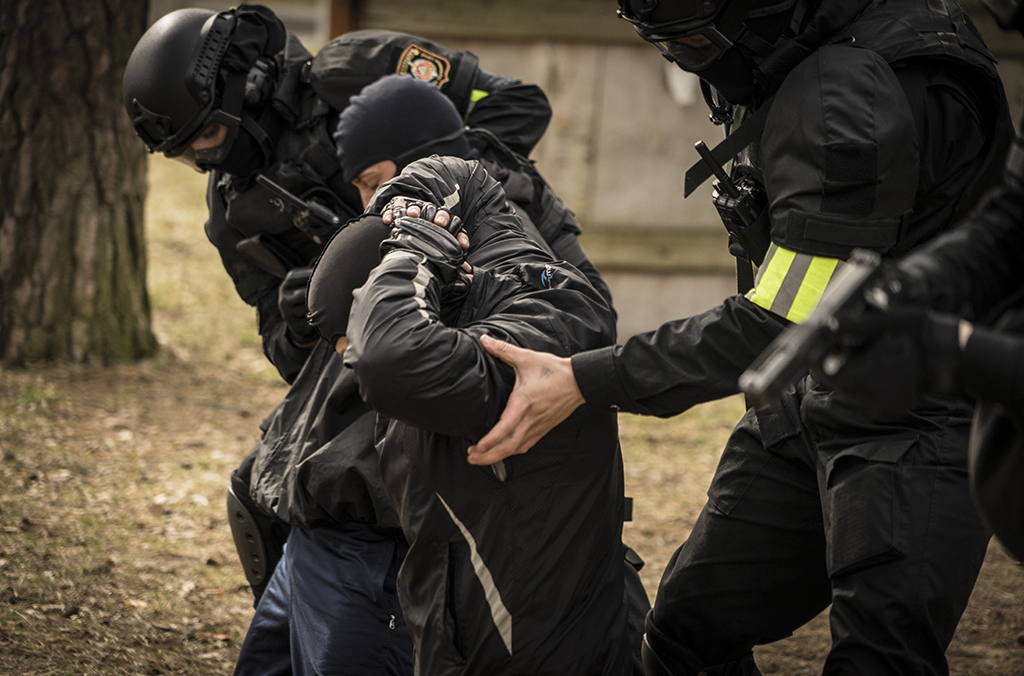
Eurasian organized crime (TEOC)
Transnational Eurasian crime groups generally come from East Europe and the Caucasus. Their activities span various crime areas and have been known to reach Western, Central and Northern Europe, North America and the Middle East.
All engage in highly-structured criminal enterprises. Some are protected from the law with the help of corrupt or criminally influenced officials.
"Thieves in Law"
“Thieves in Law” or “Thieves professing the code” are at the top of the criminal hierarchy, with influence and control that extends across groups engaging in crimes such as:
- Trafficking in drugs, human beings, motor vehicles and firearms;
- Contract murder;
- Extortion;
- Financial crime and money laundering.
They are of various nationalities, including Armenian, Georgian, Russian and Ukrainian. Their criminal activity and influence is global, affecting countries worldwide.
“Thieves in Law” have been identified by Project Millennium countries as a priority area of investigation.
They contribute to a common criminal fund worth billions known as the “Obshak”. It is invested in shares, real estate and companies, and managed by the most influential and high-ranking members.
Money is invested in legitimate companies – with the "Thieves in Law" often having great influence in activities and control of a particular sector – as well as in shadow companies used for money laundering. This means that criminal funds are generated and distributed through both legal and illegal channels, with an impact on the global economy.
Investigative support
Project Millennium has develoed tools that allow INTERPOL member countries to securely share intelligence and operational information through their National Central Bureaus. The Millenium project team provides regular assessments and analysis reports of the Eurasian organized crime landscape, based on this data.
The team also participates in Incident Response Teams (IRT), deployed to support investigations concerning transnational Eurasian organized crime (TEOC), such as firearms and drug trafficking, burglary, aggravated thefts, and other forms of serious and organized crime.
Sharing intelligence
The Millennium Analysis File provides participating countries with data on high-ranking members of Russian-speaking organized criminal groups. The information contained in this file includes:
- Personal data;
- Biometrics;
- Known associates;
- Links to organized criminal organizations;
- Locations of operation and influence;
- Personal identifiers (tattoos, physical attributes).
By proactively sharing and contributing intelligence to the analysis file, police are empowered to act locally, with the support of global data.
Working groups
A Project Millennium working group meets on a regular basis to allow law enforcement officers to share their experiences, exchange intelligence, identify emerging trends and modus operandi of crime groups in the regions concerned.
Working Group Meetings have been held in Brasilia, Brazil (May 2022), Madrid, Spain (December 2021), Salzburg, Austria (April 2019), Lviv, Ukraine (May 2018), and Moscow, Russia (June 2017).





